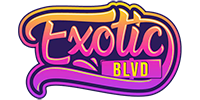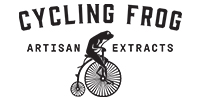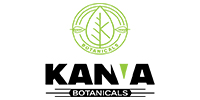Oregon Hemp: New Rules Explained

Our friends at Harris Bricken break down the new laws going live July 1st
On December 28, 2021, the Oregon Liquor and Cannabis Commission (the OLCC) adopted new hemp rules that greatly impact hemp products sold in the state. The changes were not unexpected, but the new regulations do include revisions from the version that went into effect in July 2021 (through the temporary rulemaking process). Two of the most noteworthy changes include:
- the prohibition on the sale and distribution of “adult use cannabis items” to minors as well as restrictions on the ability to sell these products outside the recreational market; and
- stringent requirements imposed on “artificially derived cannabinoids,” including the popular and lucrative cannabinoid: cannabinol (CBN).
Today, I’ll cover the rules on adult use items and the new THC limits. Next week, I’ll go over the rules on CBN and other non-intoxicating artificially derived cannabinoids.
Also, if you missed Part one of this series, which covered license ownership and transfer privilege issues, you can find it here.
Oregon’s New Hemp Rules
Under the new rules, “Adult Use Cannabis Item” means, in part, “[a]n industrial hemp commodity or product that:
- Contains 0.5 milligrams or more of any combination of: (a) total delta-9-THC; (b) any other THCs or tetrahydrocannabinolic acid, including delta-8-tetrahydrocannabinol; or (c) any other cannabinoids advertised by the manufacturer or seller as having an intoxicating effects;
- Contains any quantity of artificially derived cannabinoids (i.e., “a chemical substance that is created by a chemical reaction that changes the molecular structure of any chemical substance derived from the plant Cannabis family Cannabaceae”); or
- The testing done in accordance with ORS 571.330 or 571.339. was performed using a method with a LOQ that is not sufficient to demonstrate that the total delta-9-THC does not exceed 0.5 milligrams.
OAR 845-026-0300.
The rules further provide that if the hemp commodity or product qualifies as an adult use cannabis item, it cannot be sold or delivered to a person under 21 years of age. However, an exception exists for any hemp item sold by an OLCC-licensed marijuana retailer that:
- is registered to sell or deliver marijuana items to a registry identification cardholder who is 18 years of age or older; or
- is registered under the state’s medical marijuana program.
In addition to limiting the sale and distribution of these products to adults, the OLCC rules also restrict these activities outside the recreational market to adult use cannabis products that do not exceed specific maximum amounts of THC by more than ten percent (10%). These limits differ based on the product category, summarized as follows:
See OAR 845-026-0400 for full table.

Note that these limits become operative on July 1, 2022. In addition, these limits do not apply to hemp products containing less than 0.3% total THC sold and distributed outside of Oregon.
How the New Hemp Rules Were Made
These newly adopted limits reflect some of the recommendations received by the OLCC during the notice-and-comment period. One of these changes pertains to the much-needed distinction between single v. multi serving products. In the July 2021 version, OLCC rules imposed a 0.5 mg per package limit for total THC. This limit subjected 30- and 60-day serving products, such as dietary supplements, to the same limits as single serving products like edibles. This, in turn, was potentially more burdensome to certain industries, such as companies marketing dietary supplements.
What happens next
Despite these changes, many stakeholders remain concerned with the negative consequences these rules may create for the hemp industry. For instance, restricting access to these products and putting an age limit on all adult use cannabis products potentially misclassifies safe, non-intoxicating hemp products. Such misclassification sends a false message that all these products pose a public health or safety risk. Moreover, retailers which now have to check IDs before selling these products may be deterred from carrying these products altogether. This, in turn, could stifle economic opportunities for the entire industry and reduce consumer choices.
Obviously, the OLCC sees these changes as positive. Steve Marks, the OLCC Executive Director, called the rules “some of the best, most well-explained standard-setting that’s been put out surrounding these products” in a U.S. market rife with uncertainty and confusion.
Time will tell how these rules will ultimately impact the industry. But for now, hemp companies operating in Oregon should familiarize themselves with these rules to ensure compliance by the July 1 deadline.
Source: Canna Law Blog






























